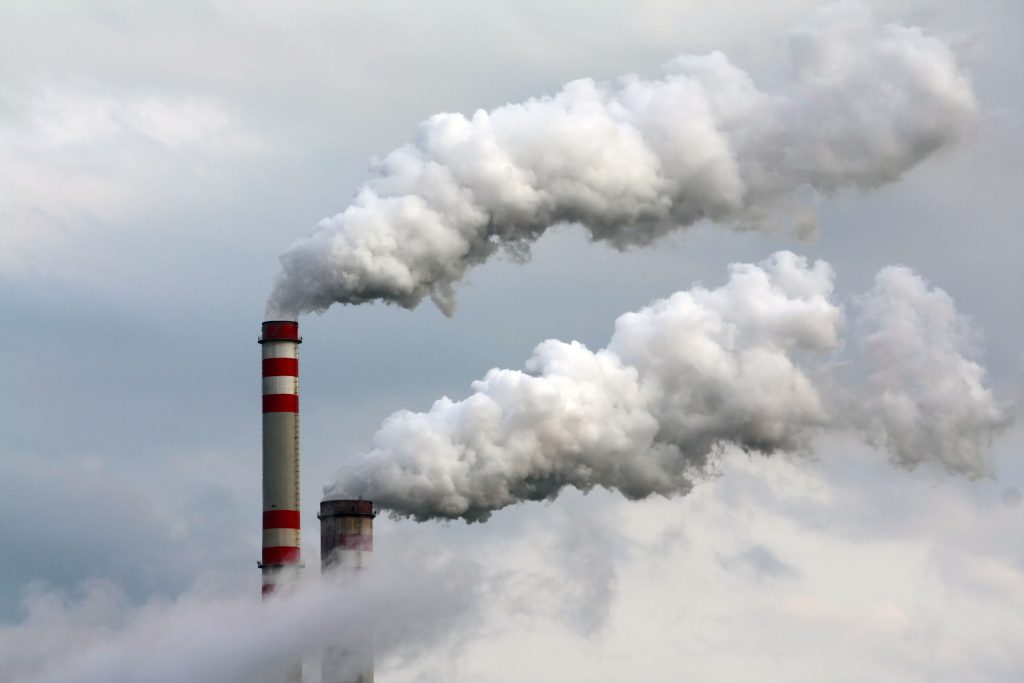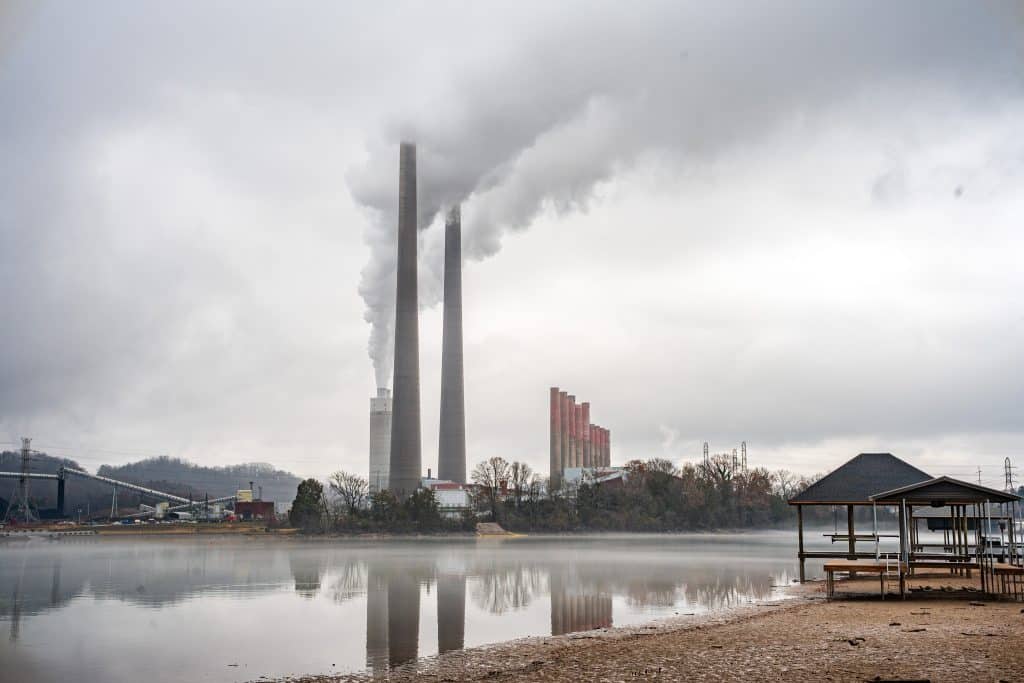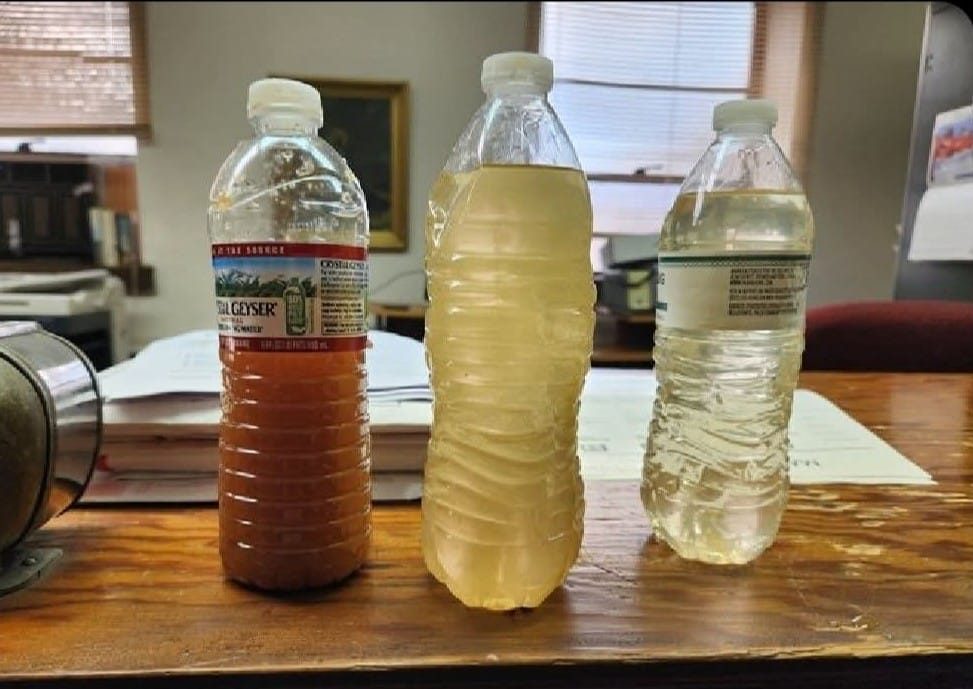Legislation Update: Coal in the Political Arena
By Maureen Halsema
Coal has been a keyword in many recent political discussions across the nation as bills addressing mountaintop removal and coal wastes have been submitted to state and national legislatures for review.
Clean Water Protection Act / Appalachia Restoration Act
The Clean Water Protection Act (H.R. 1310) in the U.S. House of Representatives and the Appalachia Restoration Act (S. 696) in the U.S. Senate would amend the Clean Water Act to protect waterways from valley fills associated with mountaintop removal. These two bills have been presented to Congress and continue to gain cosponsors.
As of February 26, 164 congressional cosponsors support the Clean Water Protection Act and 10 senators are cosponsoring the Appalachia Restoration Act.
From March 6 to 10, concerned citizens from the coalfields and across the nation will gather in Washington D.C., to speak to Congress about this legislation.
Kentucky Stream Saver Bill
The Stream Saver Bill (H.R. 104), is a proposal to amend previous legislation which relates to Kentucky’s “Restoration of approximate original contour” regulation. The proposed bill would prohibit permits from allowing the disposal of toxic coal mining wastes into Kentucky waterways. In addition to managing the waste disposal, the bill would also require that surface mined areas be reclaimed to their approximate original contour taking into account both the configuration and the area’s elevation prior to the introduction of mining practices.
According to the Kentuckians for the Commonwealth (KFTC), this bill was the first of its kind when it was originally introduced in 2005.
This year, Sen. Kathy Stein submitted the Stream Saver Bill (S. 139) to the state Senate and Rep. Tom Riner submitted the bill (H.R. 396) to the Kentucky House of Representatives.
“We are also working on drafting legislation that would go beyond this, that would be a ban on mountaintop removal,” said KFTC.
Tennessee Scenic Vistas Protection Act
The Tennessee Scenic Vistas Protection Act (S. 1406/H.R. 899), also known as the Water Quality Control Act, would limit the Tennessee Department of Environment and Conservation (TDEC) from approving certain types of surface mining permits based on outlined conditions. The bill was introduced to the Tennessee House of Representatives by Reps. Bill Dunn and Michael Ray, while Sens. Bill Ketron and Doug Jackson introduced it to the Tennessee Senate.
According to the text of the bill, permits would not be issued or renewed if the surface mining operation or its waste, fill or in-stream treatment takes place within 100 feet of any Tennessee water system. A permit that would improve the quality of a body of water previously impacted by mining practices would, however, be eligible for issuance or renewal.
Another provision of the bill would prohibit permits that would certify surface mining at and above 2,000 feet elevation from sea level if it would disturb a ridgeline. The exception to this rule would be if the permit required some surface mining in order to conduct underground mining, if approved by TDEC.
Federal Alphabet Soup: What the Agencies Are Up To
Since the change in administrations in January, 2009, federal agencies have taken a more active stance with coal industry issues.
Following is a brief rundown of the past several months:
Environmental Protection Agency—Although last year the EPA put more than 70 mountaintop removal mining permits through a more stringent review process, this January the agency approved several permits, including an expansion at the Hobet complex in West Virginia, a mining operation that currently exceeds 16,000 acres.
The EPA is also in the process of reviewing coal ash as a hazardous waste following the TVA coal ash disaster in 2008, though recent comments from the agency have led some pundits to believe that EPA officials may take a less regulatory approach to the substance.
U.S. Government Accountability Office— This January, the GAO released a second report on mountaintop removal coal mining which highlights the extensive damage that mountaintop removal coal mining causes to the land and water – as well as the challenges presented in the reclamation process.
Office of Surface Mining Reclamation and Enforcement—Joe Pizarchik, the new OSMRE director, recently toured the Appalachian coalfield region and met with citizens, promising to increase enforcement and listening to concerns.
VA Stream Saver Bill
The Virginia Stream Saver Bill, (S. 564) would end the burial of headwater streams in Virginia with wastes from mountaintop removal coal mining.
According the Stream Saver Bill, introduced by Senator Patricia Ticer, “No spoil, refuse, silt, slurry, tailings, or other waste materials from coal surface mining and reclamation operations will be disposed of in any intermittent, perennial, or ephemeral stream.”
After the state held a public hearing on Feb. 11, in front of the Senate Agriculture, Conservation and National Resources Committee in Richmond, Va., the committee voted on Feb. 15, to carry the bill over for consideration in 2011.
“While it will not be voted on this year, it provided a unique opportunity to raise the level of awareness about mountaintop removal in Virginia,”said a spokesman for the environmental coalition Wise Energy for Virginia. “We look forward to continuing to educate legislators and citizens over the rest of the year so that we can have an even larger impact during next year’s Virginia General Assembly.”
West Virginia Sludge Safety Bill
The Sludge Safety Bill, (S. 568) would prohibit issuing any new permits or modifying previously issued permits for coal slurry sites in West Virginia.
A study was mandated by Senate Concurrent Resolution 15 in March 2007, and the results were submitted to the State Legislature for review.
In the West Virginia Department of Environmental Protection’s (WVDEP) report, “An Evaluation of the Underground Injection of Coal Slurry in West Virginia,” the agency concluded that “Effective immediately, the WVDEP will impose a moratorium on the approval of injection of coal slurry into mine voids in which coal slurry injection has not previously been approved under the modern era program.”
Coal slurry sites are areas that coal companies are permitted to inject coal slurry into abandoned underground mines, such as in Mingo and Boone counties.
Currently, the Sludge Safety Project—a collaborative effort between several West Virginia organizations—is composing a unified Slurry Bill to be introduced in the State Senate and House during the 2010 session.
Related Articles
Latest News

Leave a comment
Your email address will not be published. Required fields are marked *





Leave a Comment